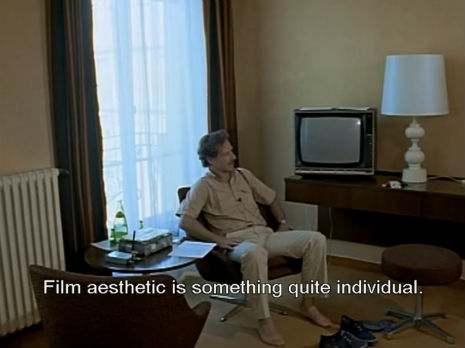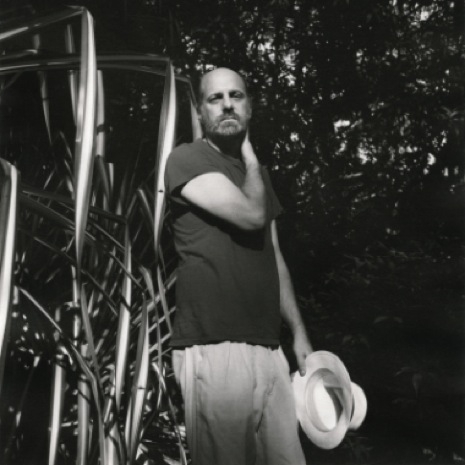
During the Cannes Film Festival in 1982, Wim Wenders set-up a static camera in a room at the Hotel Martinez. He then invited a selection of directors to answer a series of questions on the future of cinema:
“Is cinema a language about to get lost, an art about to die?”
The directors, in order of appearance were:
Jean-Luc Godard
Paul Morrissey
Mike De Leon
Monte Hellman
Romain Goupil
Susan Seidelman
Noël Simsolo
Rainer Werner Fassbinder
Werner Herzog
Robert Kramer
Ana Carolina
Maroun Bagdadi
Steven Spielberg
Michelangelo Antonioni
Wim Wenders
Yilmaz Güney
Each director was alloted 11 minutes (one 16mm reel of film) to answer the questions, which were then edited together by Wenders and released as Room 666 in 1982. Interestingly each director is positioned in front of a television, which is left on throughout the interview. It’s a simple and effective film, and the most interesting contributors are the usual suspects. Godard goes on about text and is dismissive of TV, then turns tables by asking Wenders questions; Fassbinder is distracted (he died within months) and quickly discusses “sensation oriented cinema” and independent film-making; Herzog is the only one who turns the TV off (he also takes off his shoes and socks) and thinks of cinema as static and TV, he also suggests movies in the future will be supplied on demand; Spielberg is, as expected of a high-grossing Hollywood film-maker, interested in budgets and their effect on smaller films, though he is generally buoyant about the future of cinema; while Monte Hellman isn’t, hates dumb films and tapes too many movies off TV he never watches; all of which is undercut by Turkish director Yilmaz Güney, who talks the damaging affects of capitalism and the reality of making films in a country where his work was suppressed and banned “by some dominant forces”.
With thanks to Tara McGinley, via The World’s Best Ever






